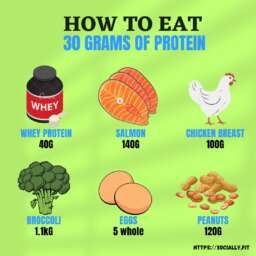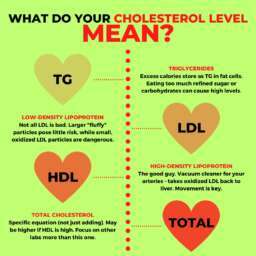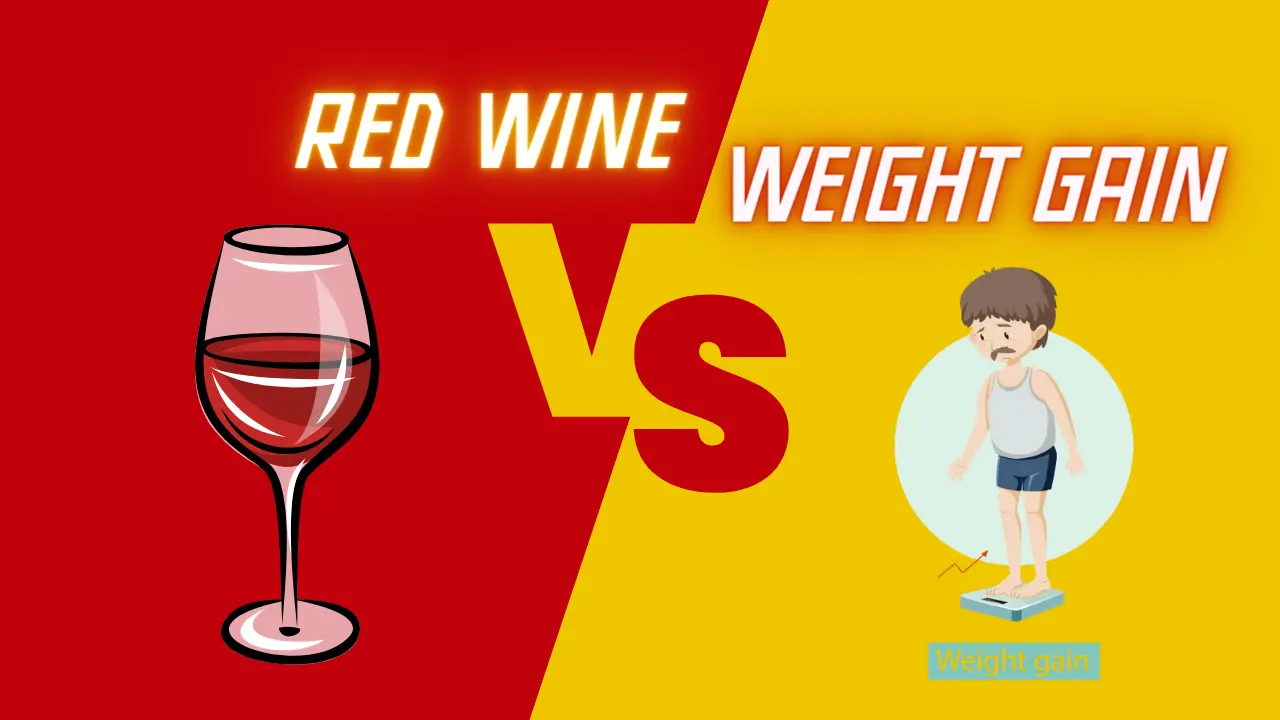Red wine has long been associated with various health benefits, including potential protection against cardiovascular diseases and certain types of cancer. However, amidst the buzz surrounding its positive attributes, there’s also a lingering concern: does red wine make you gain weight? Let’s delve into this topic and uncover the truth behind the relationship between red wine consumption and weight gain.
Understanding the Components of Red Wine

Sure, here are some tips to help understand the components of red wine:
- Types of Red Wine: Familiarize yourself with the various types of red wine available, such as Merlot, Cabernet Sauvignon, Pinot Noir, and Shiraz. Each type offers a unique flavor profile and characteristics, allowing you to find the perfect fit for your palate.
- Caloric Content: Be aware of the caloric content of red wine. On average, a standard glass (5 ounces) of red wine contains approximately 125 calories. Understanding the calorie content can help you make informed choices about portion sizes and consumption.
- Alcohol Content: Pay attention to the alcohol by volume (ABV) percentage listed on the label of red wine bottles. Red wine typically has an ABV ranging from around 12% to 15% or higher. Higher alcohol content contributes to increased calorie density, so moderation is key.
- Flavor Profiles: Explore the different flavor profiles of red wine, which can vary based on factors such as grape variety, terroir, and winemaking techniques. Take note of the tasting notes provided on wine labels or by sommeliers to better understand the nuances of each wine.
- Residual Sugar: Consider the residual sugar content of red wine, which affects its sweetness level. Dry red wines have minimal residual sugar, while sweeter varieties may contain higher levels. Opting for dry red wines can help reduce calorie intake.
Does Red Wine Make You Gain Weight?

Red wine has been a staple beverage for centuries, enjoyed by many for its rich flavors and potential health benefits. However, amidst its popularity, the question often arises: does red wine make you gain weight? To address this question, it’s essential to consider several factors.
Firstly, red wine, like any other alcoholic beverage, contains calories. On average, a standard glass of red wine (about 5 ounces) contains approximately 125 calories. Consuming excess calories from any source, including red wine, can contribute to weight gain over time.
Moreover, alcohol itself is calorie-dense, containing 7 calories per gram. Red wine typically has an alcohol by volume (ABV) ranging from 12% to 15% or higher. Higher alcohol content means more calories per serving, increasing the risk of weight gain, especially with excessive consumption.
However, it’s not just about the calories. Alcohol can also affect metabolism and nutrient absorption, potentially leading to weight gain, especially when consumed in large quantities.
Fat in Red Wine

The presence of fat in wine is not typical. Wine is primarily composed of water, alcohol, sugars, acids, and various compounds derived from grapes. However, some winemaking practices or additives might indirectly introduce fats into wine.
One such instance could be the use of certain fining agents during the winemaking process. Fining agents are substances added to wine to remove unwanted particles, such as proteins, tannins, or phenolic compounds, which can cause haziness or off-flavors. Some fining agents, like egg whites or gelatin, contain small amounts of fats that may inadvertently end up in the wine.

Additionally, the aging process in oak barrels could potentially introduce minute traces of fats into wine. Oak barrels are sometimes sealed with various substances, such as paraffin wax, to prevent leakage. While the amount of fat transferred from the barrel to the wine is negligible, it’s worth noting as a potential source.
Is alcohol fattening?

Alcohol itself is not inherently fattening, but it can contribute to weight gain when consumed in excess. Alcohol is calorie-dense, containing 7 calories per gram, which is almost as much as fat (9 calories per gram) and more than carbohydrates or protein (4 calories per gram each).
When you consume alcoholic beverages, your body prioritizes metabolizing alcohol over other nutrients. As a result, any excess calories from alcohol that aren’t immediately burned for energy can be stored as fat in the body, leading to weight gain over time.
Health Benefits of Red Wine

Red wine has been celebrated not only for its rich flavor profiles but also for its potential health benefits. Here are some of the notable health benefits associated with moderate red wine consumption:
- Antioxidants: Red wine contains antioxidants, such as flavonoids and polyphenols, which help combat oxidative stress and inflammation in the body. These antioxidants may contribute to overall health and well-being by protecting cells from damage caused by free radicals.
- Heart Health: Moderate red wine consumption has been linked to a reduced risk of cardiovascular diseases, including coronary artery disease and heart attacks. The polyphenols in red wine, particularly resveratrol, may help improve heart health by reducing inflammation and lowering LDL (bad) cholesterol levels while increasing HDL (good) cholesterol levels.
- Blood Pressure Regulation: Some studies suggest that red wine consumption in moderation may help lower blood pressure levels. The polyphenols and other compounds found in red wine may help dilate blood vessels, improving blood flow and reducing hypertension.
- Blood Sugar Control: Moderate red wine consumption may help reduce the risk of type 2 diabetes by improving insulin sensitivity and blood sugar control. However, individuals with diabetes should consult their healthcare provider before incorporating red wine into their diet.
- Cognitive Function: Resveratrol, a polyphenol found in red wine, has been studied for its potential neuroprotective effects. Some research suggests that moderate red wine consumption may help preserve cognitive function and reduce the risk of neurodegenerative diseases, such as Alzheimer’s disease and dementia.
Strategies for Enjoying Red Wine Without Weight Gain

Enjoying red wine without worrying about weight gain is entirely possible with a few mindful strategies. Here are some tips to help you indulge in your favorite beverage while maintaining a healthy weight:
- Mindful Portion Control: Be conscious of your portion sizes when pouring red wine. Stick to standard serving sizes, which typically range from 5 to 6 ounces per glass. Avoid overpouring to prevent consuming excess calories.
- Choose Dry Red Wines: Opt for dry red wines with lower residual sugar content. Dry red wines, such as Cabernet Sauvignon, Pinot Noir, and Merlot, tend to have fewer calories than sweeter varieties. These wines also pair well with a variety of foods, making them versatile choices for any occasion.
- Balance with Healthy Foods: Pair your red wine with nutrient-rich foods to balance out its calorie content. Incorporate lean protein, vegetables, whole grains, and healthy fats into your meals to create a well-rounded dining experience. This can help slow down the absorption of alcohol and promote satiety, reducing the likelihood of overindulgence.
- Stay Hydrated: Drink plenty of water before, during, and after consuming red wine. Hydration is essential for maintaining a healthy metabolism and preventing dehydration, which can exacerbate the effects of alcohol.
- Be Mindful of Mixers: If you enjoy mixed drinks or cocktails made with red wine, be mindful of the added ingredients. Many cocktail recipes contain sugary syrups, juices, or sodas, which can significantly increase the calorie content of your drink.
Conclusion

In conclusion, the relationship between red wine and weight gain is nuanced, with several factors to consider. While red wine itself is not inherently fattening, its calorie content and alcohol content can contribute to weight gain when consumed in excess. However, moderate red wine consumption, within recommended limits, is unlikely to significantly impact weight and may even offer some health benefits, such as improved heart health and antioxidant protection.
The key to enjoying red wine without gaining weight lies in moderation, mindful portion control, and balancing. By practicing moderation, choosing dry red wines, staying hydrated, and incorporating physical activity. You can indulge in red wine without compromising your weight management goals.
Ultimately, red wine can be part of a balanced lifestyle when enjoyed responsibly and in moderation. So, raise a glass to your health and well-being. Toast to enjoying red wine in a way that enhances your life without tipping the scale. Cheers!














